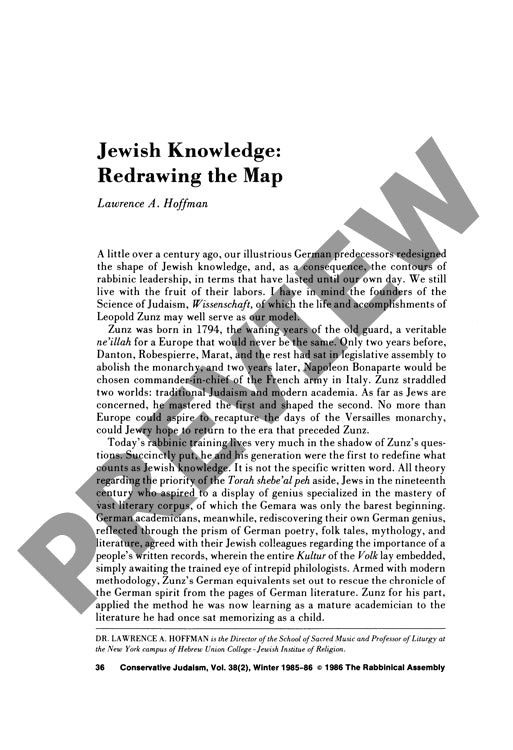Jewish Knowledge Redrawing the Map
Couldn't load pickup availability
Modern rabbinic education has become overly focused on cataloguing texts rather than engaging with lived Jewish experience, creating a critical disconnect between scholarly training and community needs. From the groundbreaking Wissenschaft des Judentums movement of the 19th century through Leopold Zunz's systematic approach, Jewish scholarship underwent a fundamental transformation - converting oral traditions into carefully classified literary collections. Drawing on Clifford Geertz's anthropological concept of "thick description" and sociology of knowledge frameworks, this analysis reveals how this text-centric evolution has shaped contemporary Jewish education. While German Jewish scholars revolutionized the field by applying modern academic methodology to Jewish texts, their legacy has inadvertently reduced rabbinic training to a form of "library science," privileging documentation over meaning-making. The research combines historical analysis, anthropological theory, and educational critique to advocate for a paradigm shift: understanding Judaism not merely as a textual corpus but as a "finite province of meaning" that structures reality through distinct concepts of time, space, and social relationships. This reconceptualization would enable religious leaders to move beyond textual expertise toward articulating Judaism's coherent meaning-making principles and cultivating vibrant Jewish communities.

More Information
-
Physical Description
-
Publication Information
Published 1985-1986
ISBN
-
Publication Credits
Lawrence Hoffman

